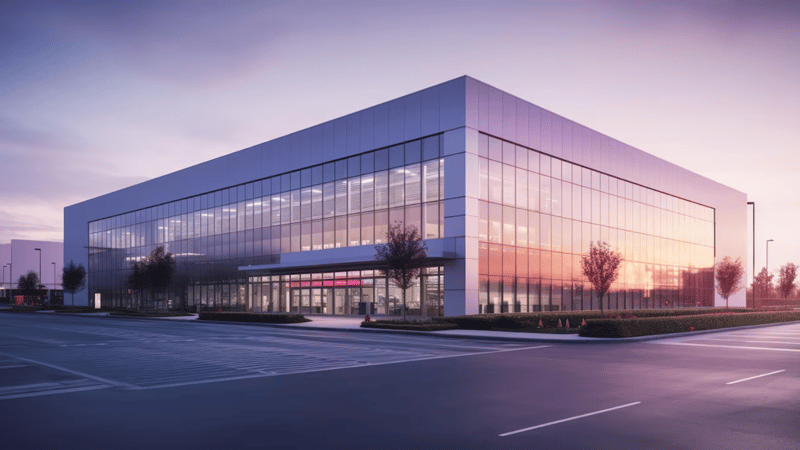As industrial spaces grow in size and complexity, property managers face increasing challenges in maintaining efficiency, optimizing resources, and ensuring seamless tenant experiences. Traditional management approaches often fall short when scaling operations, leading to inefficiencies, security risks, and higher maintenance costs. However, industrial property management technology is revolutionizing the way businesses handle industrial spaces by offering data-driven insights, automation, and predictive analytics.
This blog explores how modern technology supports the scalability and adaptability of industrial property management, enabling businesses to meet growing demands while improving efficiency and profitability.
The Challenges of Scaling Industrial Property Management
Managing industrial properties is vastly different from handling residential or commercial real estate. As businesses scale, they encounter several challenges that can impact efficiency, security, and financial management. Some of the most common issues include:
1. Space Utilization Becomes More Complex
As businesses expand, so do their storage, manufacturing, and operational needs. Poor space utilization can lead to bottlenecks, inefficient workflows, and underutilized areas. Without a proper system in place, managers struggle to allocate space efficiently, leading to unnecessary costs and operational disruptions.
2. Maintenance Becomes Reactive Instead of Proactive
Unplanned maintenance is a major challenge in industrial property management. When equipment, machinery, or facilities break down unexpectedly, it can result in costly downtime and disruptions. Many industrial spaces still rely on reactive maintenance approaches, addressing issues only after they arise rather than preventing them proactively.
3. Security and Safety Risks Increase
Large industrial spaces require robust security systems to protect assets, monitor access, and ensure the safety of workers and tenants. Manual security processes are no longer sufficient, and compliance with safety regulations becomes more difficult as facilities grow. Without industrial property management technology, organizations may struggle to enforce security measures and manage potential risks.
4. Financial Oversight Becomes More Difficult
As businesses scale, tracking expenses, budgeting, and forecasting future financial needs become increasingly complex. Without digital solutions, financial management often relies on spreadsheets and manual calculations, which are prone to errors and inefficiencies. To overcome these challenges, businesses must integrate advanced industrial property management technology to optimize processes and support growth effectively.
Want to Scale Your Industrial Property? Here’s How Technology Makes It Easy
The integration of modern technology allows businesses to scale operations without losing control over critical aspects of industrial property management. Below are key ways in which technology supports scalability and adaptability.
1. Optimized Space Utilization with Data-Driven Insights
Maximizing space efficiency is essential for industrial property management, as poor utilization can lead to unnecessary costs and workflow inefficiencies. Industrial property management technology leverages advanced analytics to track occupancy levels, assess space allocation, and identify underutilized areas. By integrating warehouse management software, businesses can automate space allocation, analyze usage trends, and track inventory in real-time. This ensures that every square foot is optimized for productivity. With data-driven insights, property managers can make informed decisions to enhance storage efficiency, reduce waste, and accommodate future expansion without compromising operational flow or tenant satisfaction.
2. Automating Maintenance for Operational Efficiency
Unplanned maintenance can disrupt industrial operations and lead to costly downtime. Industrial property management technology enables businesses to shift from reactive to proactive maintenance by implementing predictive scheduling and automated inspections. By integrating smart facility management tools, property managers can detect potential issues early, schedule timely repairs, and prevent system failures. Automated workflows help in optimizing servicing schedules, reducing manual interventions, and ensuring compliance with safety regulations. These innovations enhance asset longevity and operational efficiency, allowing businesses to scale without worrying about unexpected breakdowns or increased repair costs as their facilities expand.
3. Strengthening Security and Compliance
Large-scale industrial facilities require robust security measures to prevent unauthorized access and ensure compliance with industry regulations. Industrial property management technology integrates access control systems, real-time surveillance, and automated compliance tracking to enhance security. Advanced solutions such as biometric authentication, AI-driven monitoring, and digital reporting help businesses maintain control over facility access and operational safety. These technologies streamline incident reporting, ensure regulatory adherence, and reduce security risks. By leveraging modern security infrastructure, property managers can safeguard assets, protect tenants, and maintain a secure environment even as operations scale to accommodate growth.
4. Streamlining Logistics and Storage Operations
Efficient logistics and warehouse management are crucial for industrial property scalability. Warehouse management software automates inventory tracking, optimizes storage layouts, and provides real-time shipment updates, ensuring seamless supply chain operations. These digital solutions eliminate inefficiencies by enhancing visibility into stock levels, reducing delays, and improving workflow organization. Advanced analytics enable businesses to predict demand, allocate resources effectively, and prevent overstocking or shortages. By integrating smart logistics solutions, industrial property managers can improve inventory turnover rates, streamline order fulfillment, and support operational expansion without disrupting workflow efficiency or increasing costs.
5. Financial Planning and Expense Management
As industrial properties scale, financial oversight becomes more complex. Industrial property management technology simplifies budgeting, expense tracking, and revenue management with automated solutions. Businesses can use digital platforms to monitor financial performance, generate detailed reports, and automate rent collection or lease tracking. AI-driven analytics enhance financial forecasting, allowing property managers to plan for future expenses and optimize cost-saving strategies. By integrating scalable property solutions, businesses can maintain financial stability, streamline accounting processes, and ensure sustainable growth without the risks of mismanagement or budget inefficiencies. This technology-driven approach ensures financial transparency and long-term profitability.
The Future of Industrial Property Management
As industries continue to expand, integrating industrial property management technology will be essential for ensuring long-term success. The future of industrial space management will be driven by:
-
AI and Machine Learning: Advanced algorithms will provide predictive insights for maintenance, space utilization, and financial planning.
-
IoT and Smart Sensors: Connected devices will offer real-time monitoring of assets, energy consumption, and security systems.
-
Cloud-Based Platforms: Centralized property management systems will allow remote monitoring and collaboration.
By adopting scalable property solutions, businesses can future-proof their operations and ensure that their industrial properties remain adaptable to changing market demands.
Final Thoughts
Scaling industrial property management requires more than just adding new facilities—it demands intelligent solutions that optimize efficiency and support growth. By leveraging industrial property management technology, businesses can streamline space utilization, automate maintenance, strengthen security, and enhance financial planning.
With the right tools, businesses can transition from reactive management to proactive, data-driven decision-making, ensuring long-term success. Whether through smart facility management, warehouse management software, or scalable property solutions, technology is the key to achieving growth and adaptability in industrial property management.
Are you ready to scale your industrial property management operations? Start integrating smart technology today for a more efficient and profitable future.














